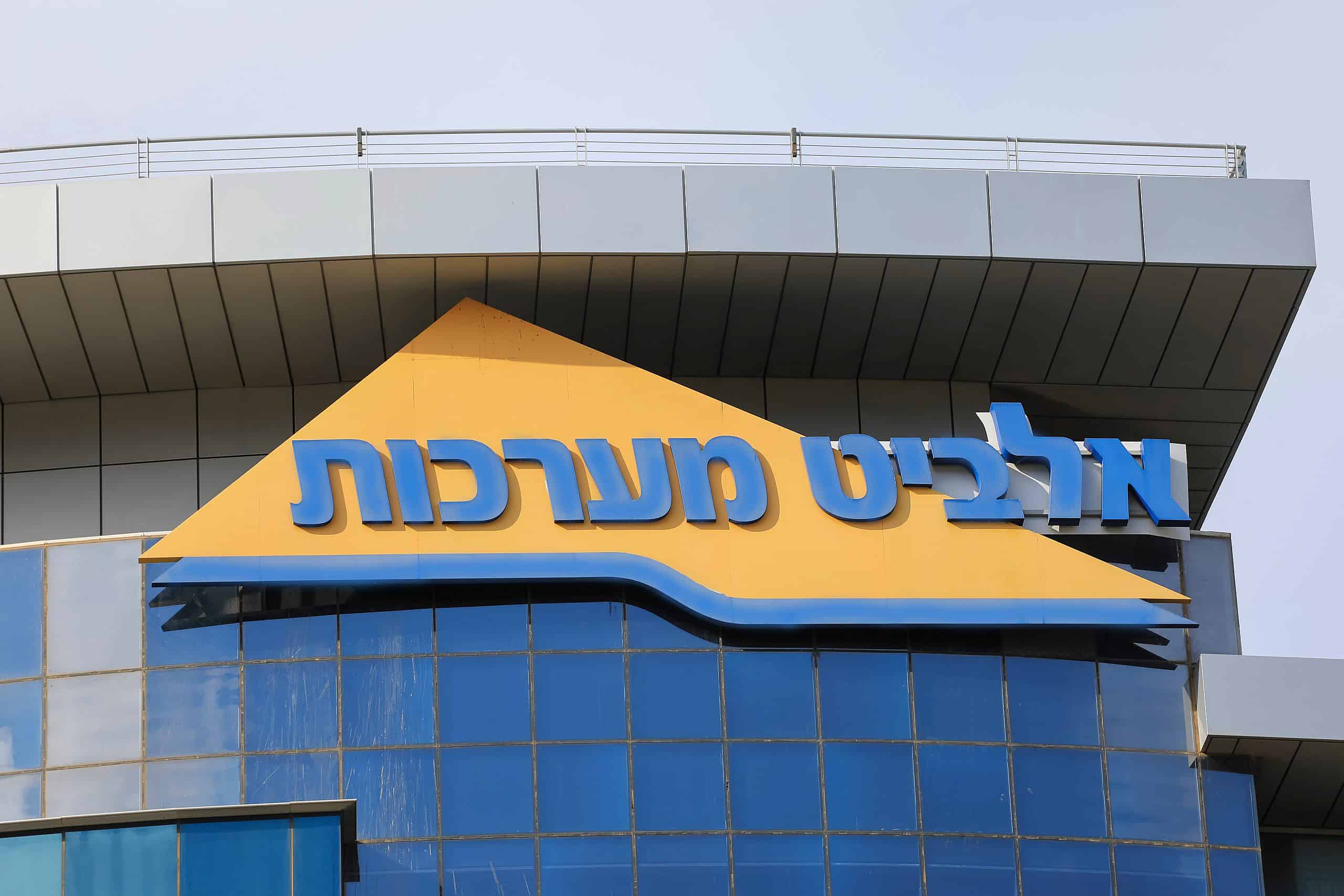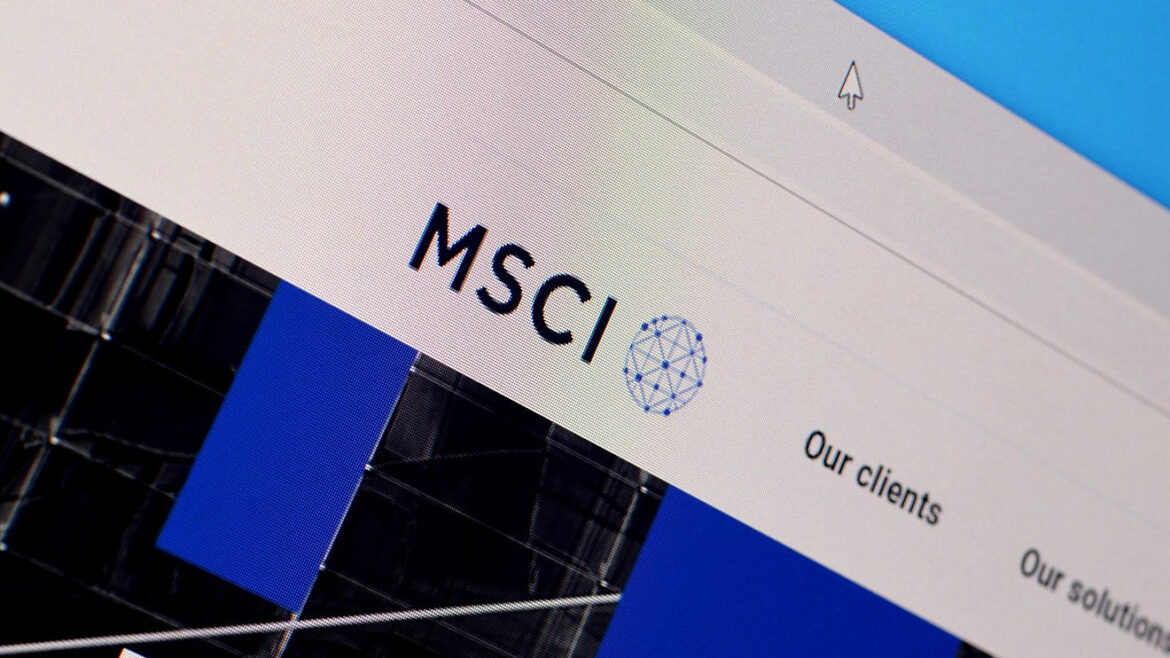As one major investment firm takes concrete steps to ensure its processes of rating companies are no longer affected by anti-Israel sources, another major financial company is being accused of engaging in practices that boycott the Jewish state.
Last month, Chicago-based Morningstar, which manages and advises on about $264 billion in assets, released a comprehensive report that it commissioned to address concerns that one of its subsidiaries has engaged in anti-Israel bias.
JNS has learned that the financial arm of the State of Florida is researching the practices at New York-based MSCI, a financial company with some $5.2 billion in assets.
Like Morningstar, which allegedly assigned damaging ratings to a dozen companies that it said committed “human rights violations” simply for conducting business in Judea and Samaria and eastern Jerusalem, MSCI’s environmental, social and corporate governance (ESG) ratings appear to downgrade companies for the same reason.
ESG ratings purport to provide socially conscious investors with information about the records of companies on the environment and human rights, but critics have long said that the ESG industry is steeped heavily in left-wing politics and on that basis, punishes companies whose business, often bound by fiduciary duties to shareholders, doesn’t align with its own.
Using a publicly available search tool on the MSCI website, JNS found that MSCI has tagged nine companies that generated ESG controversy ratings at Morningstar for doing business in Judea and Samaria with its own such ratings.
Those businesses are Bank Hapoalim, Bank Leumi, Bank Mizrahi, Caterpillar, CEMEX, Elbit Systems, Heidelberg Materials, Motorola and PayPal.
An MSCI spokesperson told JNS that the company does not use sanctions lists in its ratings processes. But the firm’s publicly available methodologies explainer states that when assigning ESG controversy scores, MSCI uses press releases from non-governmental organizations and global media articles and reports.
Konstantinos Makrygiannis, head of external communications for Europe, the Middle East and Africa at MSCI, told JNS that the firm has not heard from any state agencies about potential violations of laws about the boycott, divestment and sanctions (BDS) anti-Israel movement.
Devin Galetta, communications director for the office of Jimmy Patronis, the chief financial officer of the State of Florida, told JNS that the state has begun researching MSCI’s processes and whether the state holds stakes in or does business with MSCI.
“The State of Florida has proudly vowed to assist our allies in Israel both morally and monetarily. The CFO’s office takes this matter seriously and stands against BDS and anti-Israel practices,” the office said in a statement to JNS. “Our office has referred this information to the State Board of Administration for further review.”

‘Severe’ controversies
Florida’s State Board of Administration is responsible for investing several billion dollars, including from Florida’s state pension funds. The Sunshine State was one of about 20 that announced an investigation of Morningstar for potential BDS law and other violations. Morningstar has since changed its ratings processes.
Critics said that Morningstar gave weighted anti-Israel, pro-BDS materials distributed by NGOs and the attention the movement received in global media coverage above verifiable facts.
MSCI declined to provide JNS with internally developed reports on the nine businesses that JNS flagged. The spokesperson told JNS that information is not available to the public.
A copy of MSCI’s ESG ratings for Elbit, dated January 2023, that JNS viewed suggests that MSCI deducted 2.4 points from the international defense technologies company’s ESG ratings due to controversies surrounding Elbit’s participation in the construction of security and surveillance barriers designed to protect Israelis from terrorists.
In the document JNS viewed, MSCI described the controversies as “severe.”
The MSCI report cited Elbit’s construction of the security barrier in Judea and Samaria at the height of the Second Intifada, which stopped the flood of suicide bombers from crossing from Palestinian Authority-controlled territory to Israel.
The MSCI report cited criticism of the barrier by the “Palestinian civil society campaign for boycott, divestment and sanctions.” It also mentioned Pax Christi, a Catholic group that routinely demonizes Israel, and “Jewish Voice,” an apparent reference to Jewish Voice for Peace, which also denounced the Jewish state regularly.
In its damaging score of Elbit, MSCI also included the company’s construction of the “smart barrier” along the Gaza border—the one that Hamas terrorists destroyed on Oct. 7 en route to carrying out their killing and hostage-taking spree. (JNS sought comment from Elbit several times for this story.)
The barrier “would allegedly intensify Israel’s control over Gaza and
would further hinder peaceful resolution of the conflict,” the document states.


